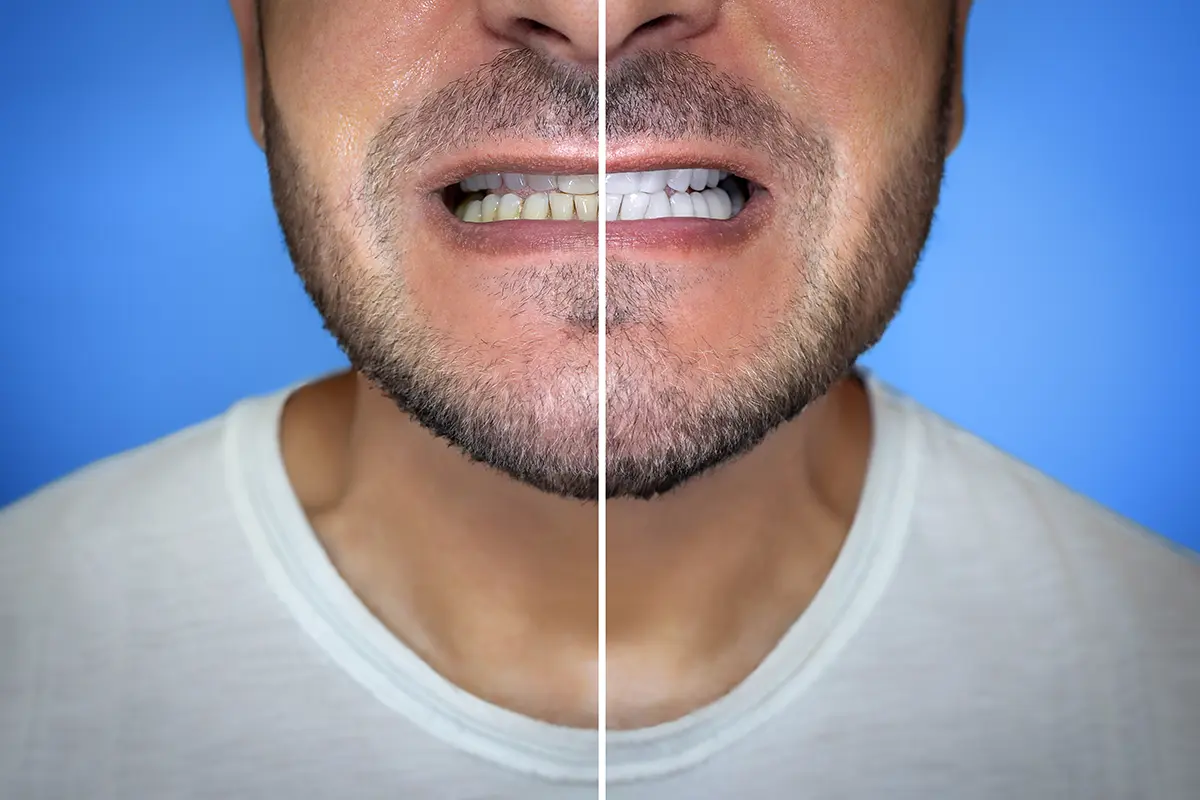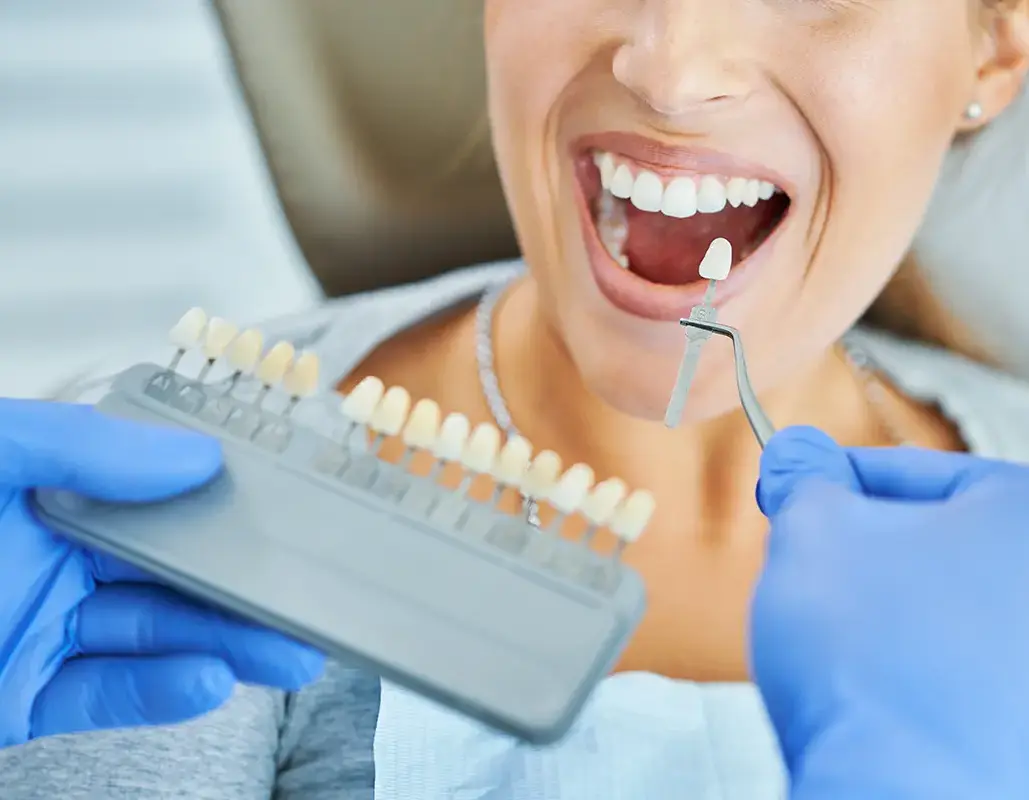


Veneers are considered a permanent dental restoration as a thin layer of enamel is typically removed from the teeth during the preparation process. While veneers can last for many years with proper care, they may need to be replaced eventually due to wear and tear or changes in dental health.
Unlike natural teeth, veneers cannot be whitened through traditional teeth whitening methods. However, if the veneers become stained or discolored over time, they may need to be replaced to restore their original appearance. It's important to maintain good oral hygiene and avoid habits that can stain or damage the veneers to prolong their lifespan.
Veneers do not require any special care beyond regular oral hygiene practices, such as brushing twice a day, flossing daily, and attending regular dental check-ups. However, it's essential to avoid biting hard objects or using teeth as tools to prevent chipping or damage to the veneers. Additionally, patients may be advised to wear a nightguard if they clench or grind their teeth to protect the veneers from excessive force during sleep.
